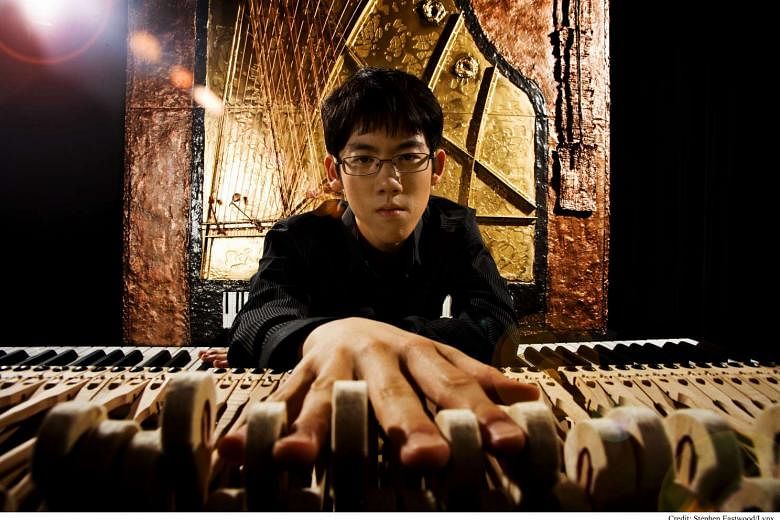REVIEW / CONCERT
SINGAPORE SYMPHONY ORCHESTRA - MAHLER 5
Singapore Symphony Orchestra, Shui Lan (conductor), Zhang Haochen (piano)
Esplanade Concert Hall/Last Friday
Zhang Haochen from China, joint winner of the 2009 Van Cliburn International Piano Competition, made his return performance with the Singapore Symphony Orchestra (SSO), this time playing a delightful Piano Concerto No. 20 In D Minor by Mozart, followed by a full-blooded performance of Mahler's monumental Symphony No. 5.
From his entry on the piano, coming after the brooding orchestral introduction, it was clear that Zhang has a natural affinity for and a temperament that is ideal for Mozart.
The 26-year-old plays with a refreshing blend of directness and maturity. His effortless phrasing, fluent articulation and rhythmic precision were beyond reproach and his solo entries were perfectly synchronised with the orchestra.
The second movement was exquisitely played and a highlight of the evening. He gave the movement a sophisticated simplicity, never overdoing the sentimental sections and giving Mozart's unexpected transition into a minor key just the right touch of drama.
The SSO provided excellent support throughout. Shui's reading focused on elegance and clarity and the SSO's strings were polished.
On the other hand, some of the emotion and edginess in the orchestration of Mozart's most intense piano concerto were not fully captured.
While the concerto showed off Zhang's consummate musicianship, it was his encore - a cheeky arrangement by Acardi Volodos of Mozart's Rondo Alla Turca - that gave the audience a glimpse of his amazing technical ability.
Beginning with the original notes of Mozart's Rondo, it soon made way for increasingly bold and witty counterpoint, until the well-known melody transformed into a virtuosic showcase.
Mahler's Symphony No. 5 was as much a virtuoso showcase for the conductor and orchestra as Zhang's encore.
The 70-minute symphony opened with solo trumpet fanfare, with trumpet, brass and percussion featuring strongly throughout the work - and trumpet principal Jon Dante played brilliantly all evening, with a penetrating, tuneful tone and great rhythmic accuracy.
The sombre funeral march that followed was punctuated with terrifying orchestral outbursts, all of which Shui directed with great control.
But while his conducting was most impressive and the SSO's response excellent, the movement lacked some of the melancholy and menace that make it so memorable.
The achingly soulful and beautiful slow fourth movement, Adagietto, the most recognised of all symphony movements by Mahler, is just the type of movement that Shui relishes.
He opted for an even-keeled, slightly cool reading, and his careful direction of the strings and harp led to a highly satisfying, if slightly unremarkable, performance.
It was in the more energetic second, third and final fifth movements that the conductor and orchestra were most convincing.
The third-movement scherzo features extended horn solos, so much so that horn principal Han Chang Chou performed almost the entire movement standing.
Recovering well from an early fluff, his solos were confidently delivered, with a brassy, Wagnerian tone.
In fact, all sections of the orchestra excelled this evening.
It was a no-holds-barred performance and another example of why Shui and the SSO have earned such a strong following for their performances of Mahler.

